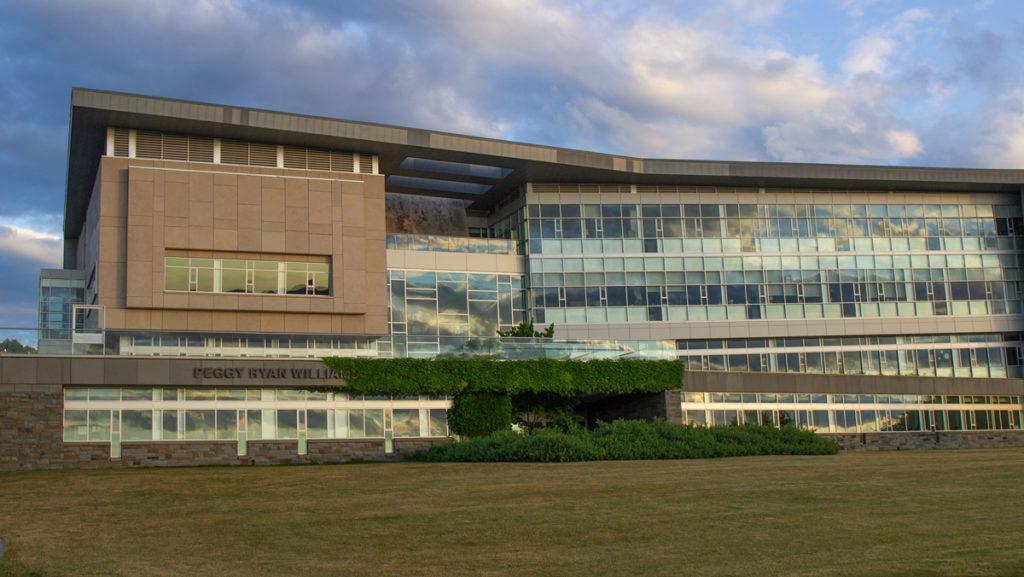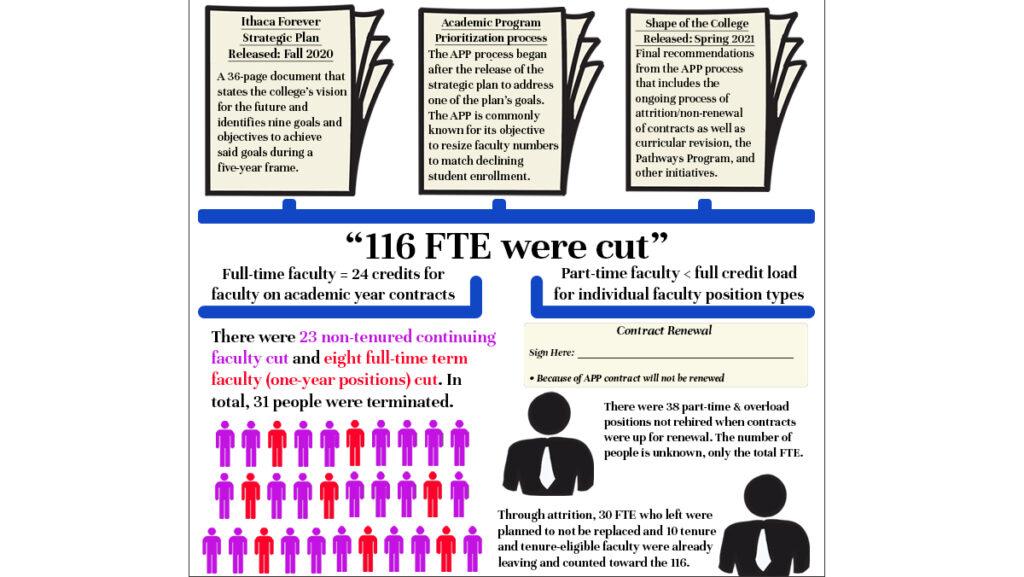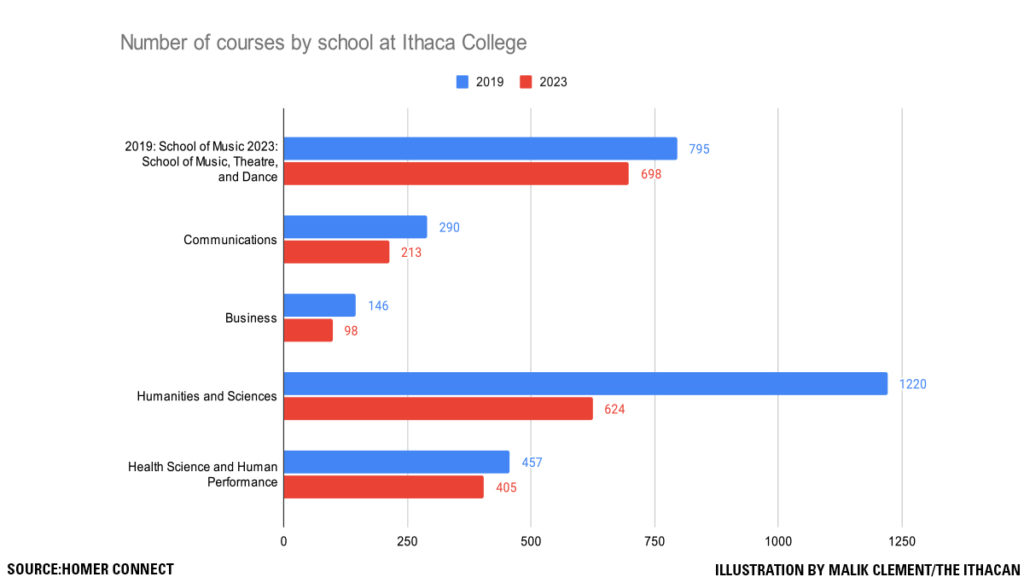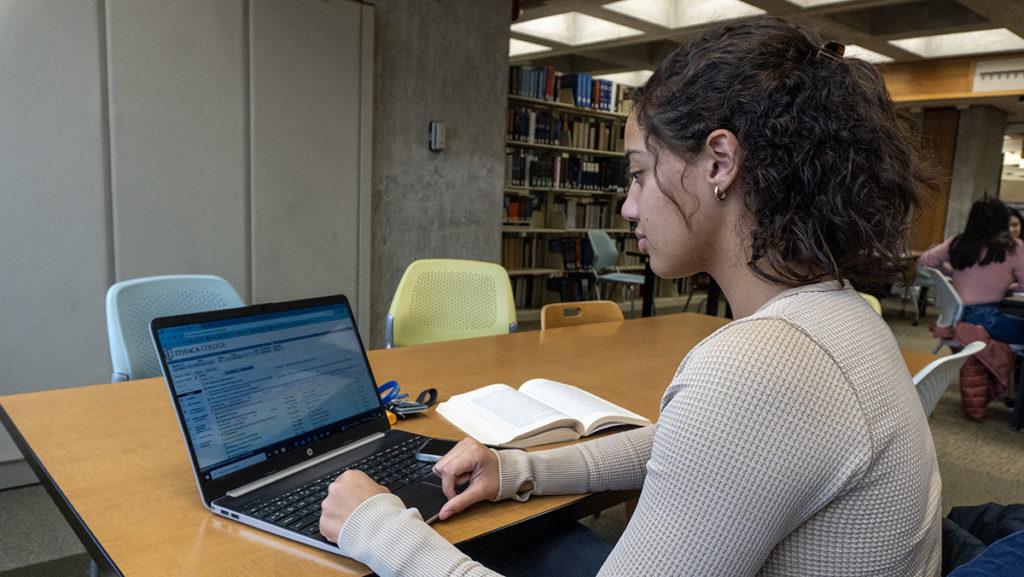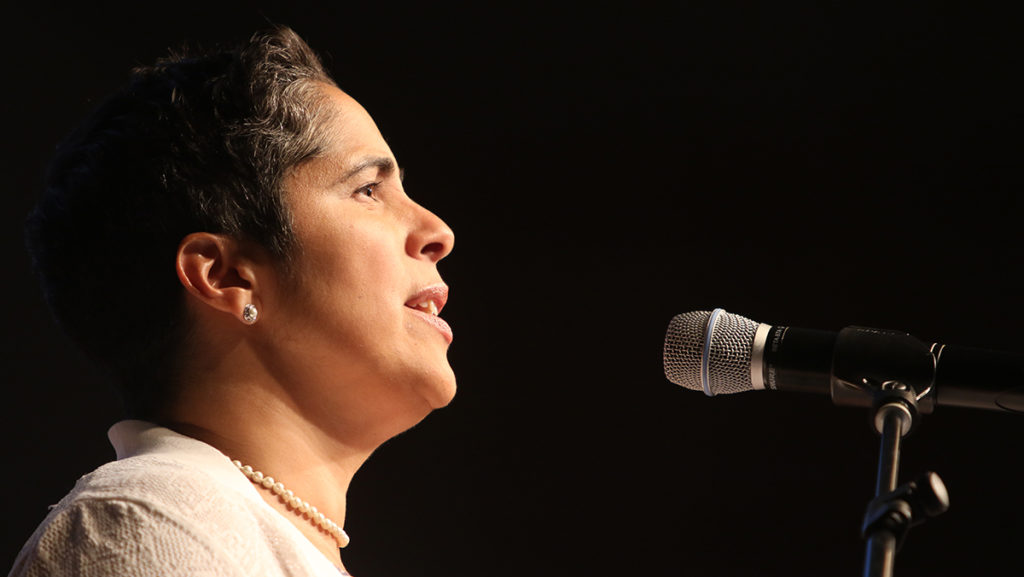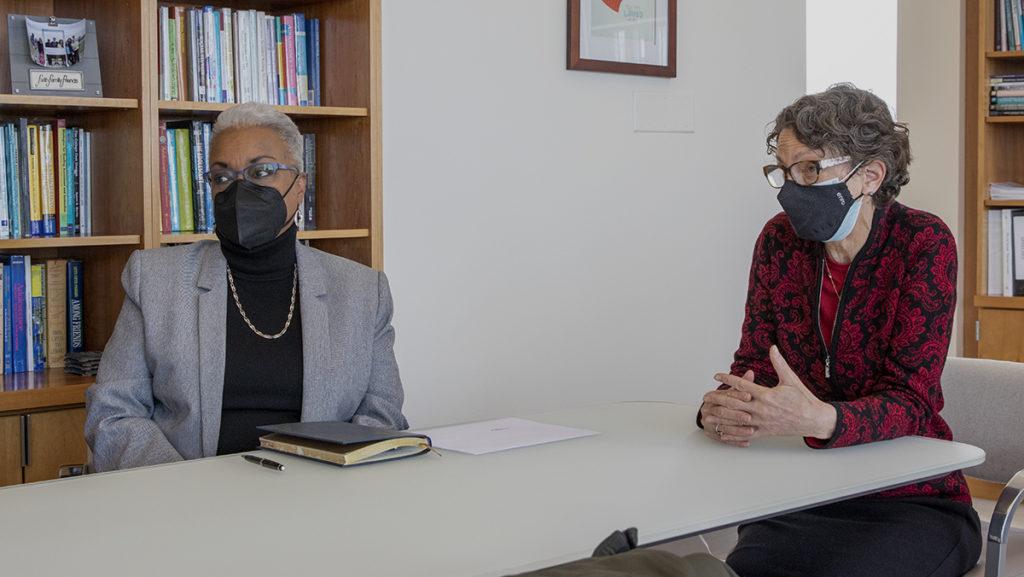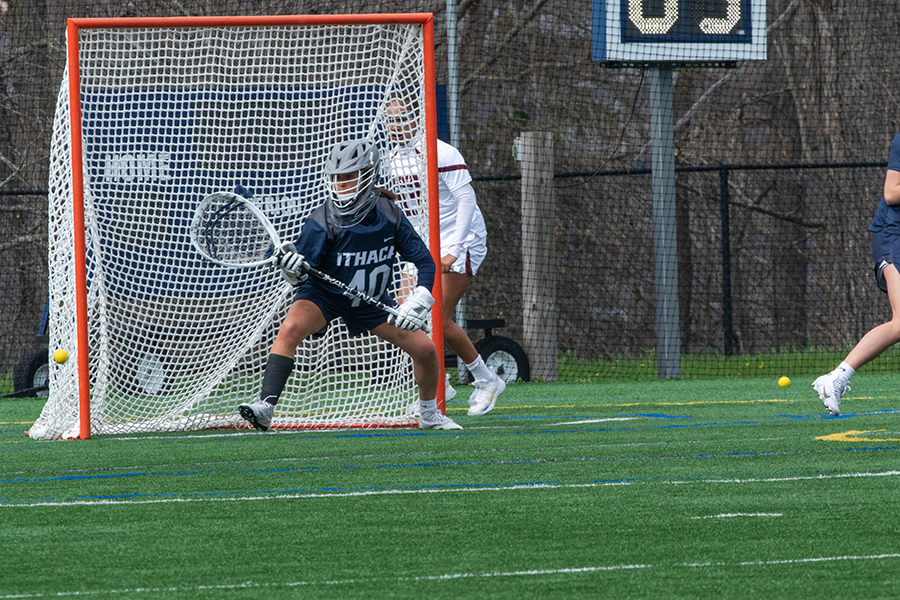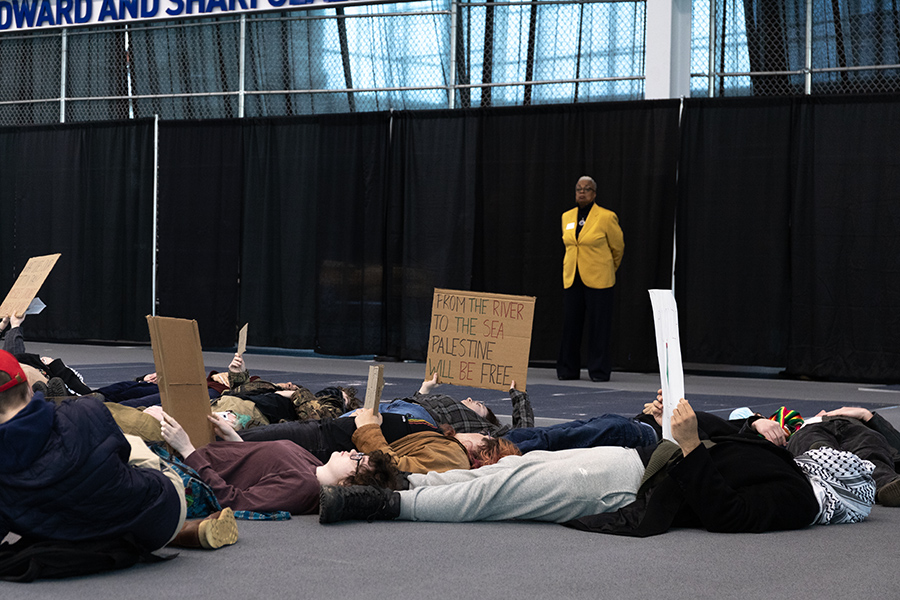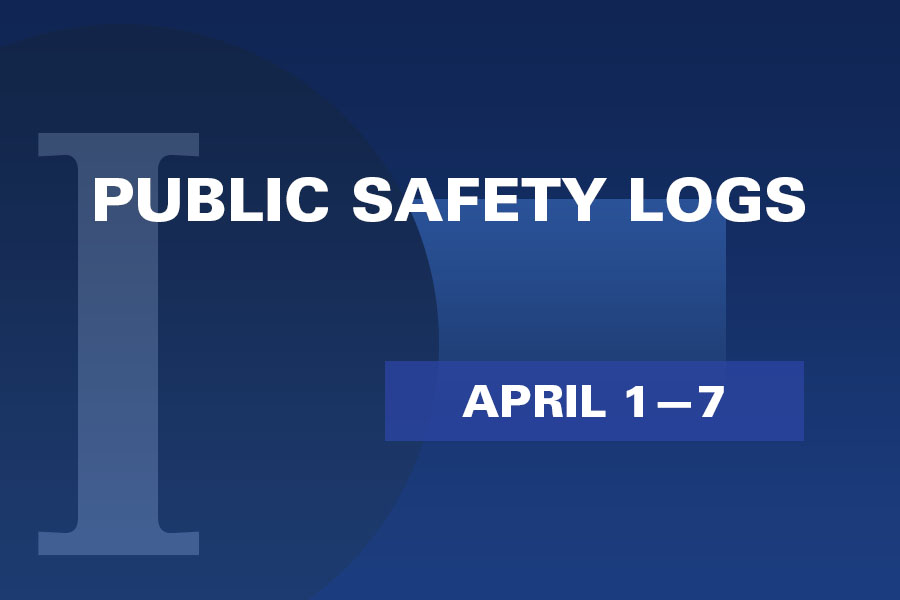Members of the Ithaca College Faculty Council Executive Committee (FCEC) are requesting that the administration delay some of its impending faculty cuts until after the COVID-19 pandemic.
On Oct. 18, the committee sent a letter voicing criticisms to President Shirley M. Collado; La Jerne Cornish, provost and senior vice president for academic affairs; and the members of the Senior Leadership Team (SLT). At the Faculty Council meeting Oct. 6, Cornish said that approximately 130 full-time equivalent (FTE) faculty out of the 547 FTE positions will lose their jobs because of decreased enrollment. FTE is a unit of workload, calculated by an employee’s scheduled hours divided by the hours for a full-time workweek. This reduction process could happen in ways other than layoffs, like adjusting teaching loads or not filling vacant faculty lines. The college will recommend to the Academic Program Prioritization Implementation Committee (APPIC) which faculty members should be “nonrenewed” by Dec. 31. Faculty members whose positions will not be renewed for the 2021–22 academic year will be notified in March 2021.
Since Cornish shared the news regarding faculty cuts, the college has made it to national headlines in publications like Inside Higher Ed, The Chronicle of Higher Education and Forbes. The college is not alone in having to make decisions about cutting personnel and programs. Employment in the private education industry is down by 355,000 since February, according to the U.S. Bureau of Labor Statistics.
The letter was signed by FCEC members Chris McNamara, clinical associate professor and clinic director in the Department of Physical Therapy and chair of the Faculty Council; Jason Freitag, associate professor in the Department of History and vice chair of the council; Claire Gleitman, professor in the Department of English, women’s and gender studies coordinator and secretary of the council; Diane Birr, professor in the Department of Performance Studies and the Faculty Council representative to the Academic Policies Committee; Chrissy Guest, associate professor in the Department of Media Arts, Sciences and Studies and council member-at-large; and Raul Palma, assistant professor in the Department of Writing and council member-at-large. The committee requested that the administration take two to three years to determine the proper faculty and staff size for the college.
“We are requesting that the SLT operate not all at once but over time, making some decisions in the short term but delaying others until we can assess our fiscal and enrollment environments once COVID-19 is behind us,” the letter stated. “Doing so, we believe, will generate greater transparency, more informed decision-making and far more confidence and trust on the part of the Ithaca College community — a community that includes not just faculty, staff, current students and their parents but also our alumni, who are watching these events unfold very closely.”
Instead, the committee suggested that the administration focuses its attention on strategies for bettering enrollment. According to the 2020–21 Facts in Brief, this year’s acceptance rate was 75.7%, making it the highest percentage in a decade. In Fall 2019, the college accepted 72.8% of its applicants. The Fall 2020 yield rate — or the percentage of applicants who were admitted to the college and decided to enroll — is 10.1%. This is the lowest yield since 2014, a rate that was 14.5%. The Fall 2019 yield rate was 14.6%.
Additionally, the committee suggested that the administration focuses on increasing philanthropic giving. Over the last decade, the percentage of alumni donating to the college’s annual fund, capital projects and endowments has decreased by approximately half.
The letter stated that these strategies will take time to implement. In the meantime, the committee suggested that the college continues to offer retirement incentives to mitigate the need to cut existing faculty members.
McNamara, Freitag, Gleitman, Birr and Guest said they did not have any further comments to add to the letter.
Director of public relations Dave Maley said that Collado and the SLT have received the letter. Collado and Cornish sent a message to the campus community Oct. 19 outlining the reduction process. Maley said that the Oct. 19 message was not a response or comment on the FCEC letter.
“[The administration’s letter] was intended to provide faculty, staff and students with critical context regarding strategic planning, the academic program prioritization process and how that is necessary to positioning the college for a strong future,” he said via email.
Collado said at the All-College Gathering on Sept. 22 that staff and faculty reductions are a response to the need to resize the college, as mentioned in the Ithaca Forever strategic plan. At the All-Student Gathering on Oct. 15, Collado and Cornish echoed the same sentiment.
“It’s not because of an enrollment crisis,” Collado said at the Oct. 15 meeting. “It really is about shoring up that we’re a leaner organization so that we can be sustainable over time but, most importantly, that we can really commit to protecting financial aid and growing it.”
In the Oct. 19 email, Collado and Cornish said that since March, 264 staff members have been impacted by furloughs, position eliminations or reductions in hours. APPIC decisions have not yet been made.
The college is looking to establish a 12–1 student-to-faculty ratio. With a Fall 2020 student FTE of 5,256.9 and a faculty FTE of 547, the current student-to-faculty ratio is 9.61 to 1. The faculty FTE has stayed relatively consistent over the years, even though enrollment has dropped. Compared to other private peer institutions, which the Office of Analytics and Institutional Research defines as the top 50 Fall 2019 undergraduate admissions competitors in the School of Business and the School of Humanities and Sciences excluding theater, Ithaca College had the lowest student-to-faculty ratio out of institutions with an enrollment between 5,000 and 9,999, as of 2018. The last time the college had a 12–1 ratio was in Fall 2011 when the faculty FTE was 545 and the student FTE was 6,654.7.
The FCEC called two meetings during the week of Oct.12, each of which approximately 300 faculty members attended, according to the letter. During these meetings, faculty members have raised questions regarding the time frame of the cuts.
“Has the number 5,000, which has been settled upon as the correct one for our student body going forward, been determined strategically or merely reactively?” the letter asks. “On what grounds do we conclude that 12:1 is the appropriate student-faculty ratio? Why have we decided to accept lower student and faculty numbers as an inevitability due to historically declining yields, when numerous institutions within our region have not suffered such low yields despite sharing the challenges of demographic shifts and, more recently, COVID-19? We recognize that institutions have very different profiles and potential student pools that can account for some of this, but still the overall picture seems to be graver for IC than for many of its competitors. Why is that so? We wonder too why we are taking such drastic actions in an anomalous year, when it is difficult to see the forest for the trees. Are we creating even greater problems for ourselves in the future, in light of the punishing representation we are receiving in the media? Most crucially, how will the proposed cuts solve our problem and what is the college’s plan to prevent us from being forced to make yet more cuts going forward?”
The letter also questioned if there will be administrative cuts, a move that would offset faculty and staff reductions. Additionally, the committee raised concerns about newer faculty members, some of whom are faculty of color, as well as nontenured and contingent faculty members being more vulnerable to losing their jobs.
“If we eliminate these faculty, it is highly unlikely that — should circumstances improve — we will be able to gain them back again,” the letter stated.
The committee acknowledged in the letter that some cuts do need to happen immediately. However, it stated that faculty members have raised concerns that the current timeline is too compressed to allow for collaborative and transparent decision-making. The letter asked the administration to have a discussion with the faculty prior to the APPIC decisions being made.
In the letter, the committee thanked Cornish for her openness through the process. In October 2019, council members raised concerns about transparency between faculty members and the administration. In February 2020, some faculty members expressed worries about the administration’s leadership regarding issues of finances and campus climate.
“We are grateful for that, and, as a result of it, we think we can fairly say that we are not unrealistic,” the letter stated. “We know that the college’s fiscal crisis is all too real. Nevertheless, we share the concerns and ask the same questions that we are hearing from our colleagues. We believe deeply that a more gradual approach will greatly improve morale and benefit the college in the long term.”
The full FCEC letter can be read here.


